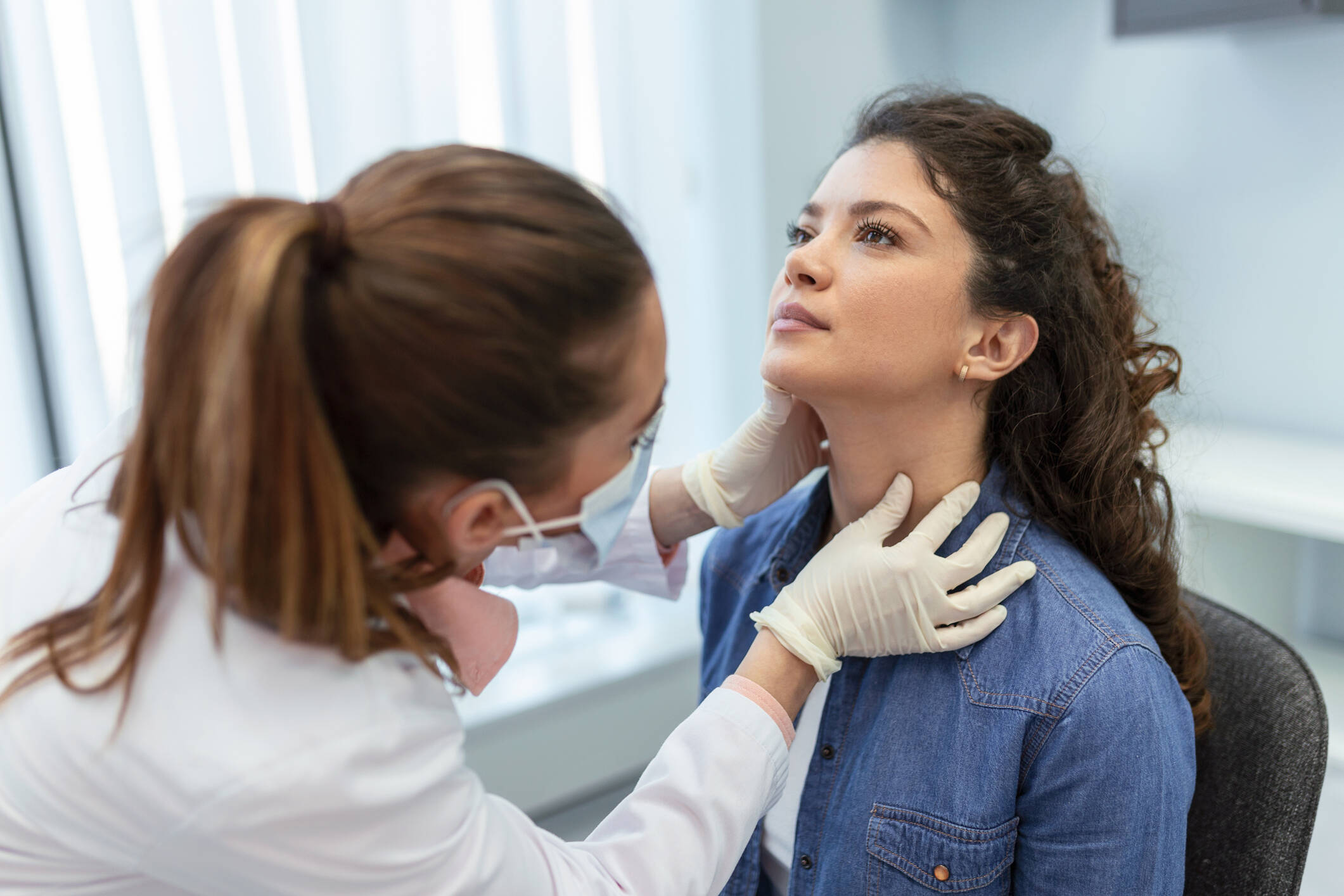The thyroid also speaks from the mind: How hypothyroidism can cause depression and anxiety

The thyroid, a small butterfly-shaped gland located at the base of the neck, performs an essential function that millions of people overlook. Its role is as broad as it is crucial: it regulates metabolism, body temperature, heart rate, growth, weight, and even mood. Therefore, when its function is altered, the impact extends to both the body and the mind.
According to estimates by the World Health Organization (WHO), approximately 750 million people worldwide have some form of thyroid disease, equivalent to nearly 10% of the global population. However, more than 60% of cases remain undiagnosed, a figure that reveals the magnitude of a silent problem that particularly affects women, who are five to eight times more likely than men to develop a thyroid condition throughout their lives.

One in eight women will develop a thyroid disorder in their lifetime. Photo: iStock
Among the most common thyroid diseases is hypothyroidism, a condition characterized by insufficient production of thyroid hormones. This deficiency causes a general slowdown of the body's processes and manifests with symptoms such as constant fatigue, weight gain, constipation, dry skin, sensitivity to cold, and muscle cramps.
But the consequences aren't limited to the physical. In the context of World Mental Health Day, commemorated every October 10, specialists warn that hypothyroidism can also disrupt emotional and cognitive functions. Depression, anxiety, lack of concentration, and mental slowness are some of the signs that can accompany those who live with this disease without knowing it.
In Colombia, although there are no consolidated figures, it is estimated that more than five million people could suffer from hypothyroidism, many of them undiagnosed and untreated.

Hypothyroidism, in addition to causing weight gain and fatigue, can trigger depression and anxiety. Photo: Istock
One of the greatest challenges facing thyroid diseases is their timely detection. According to the American Thyroid Association (ATA), 60% of patients remain undiagnosed, primarily because symptoms are nonspecific and often attributed to stress, age, or lifestyle.
“Early diagnosis of hypothyroidism is essential, especially in high-risk groups such as women, older adults, and those with a family history of thyroid disorders. A timely approach allows for the initiation of appropriate treatment, which not only prevents physical complications but also protects psychological well-being,” explained Dr. Álvaro Rojas, Abbott's medical director for Latin America.
When the disease is not identified early, symptoms can intensify, leading to frustration, loss of self-esteem, and deterioration in quality of life. Therefore, specialists recommend accompanying medical treatment with mental health support and ongoing clinical follow-up.
Risks and complications Untreated hypothyroidism can lead to serious metabolic and cardiovascular disorders, such as high cholesterol, hypertension, or diabetes. The incidence is especially high in women: one in eight will develop a thyroid disorder at some point in their lives.
During pregnancy, the risks increase. Thyroid disorders can increase the risk of anemia, preeclampsia, premature birth, and affect fetal brain development, especially in the first trimester. These complications make proper detection and treatment even more urgent.

Early detection and comprehensive care are key to protecting your body and mind. Photo: iStock
Faced with this condition, experts agree that treatment cannot be reduced solely to medication. The approach must be comprehensive, combining medical therapy with sustainable wellness habits, such as a balanced diet, regular exercise, stress management, and, when necessary, psychological support.
“Improving hypothyroidism care requires combining education, early detection, and scientific innovation with daily wellness habits. Promoting awareness about the disease and encouraging routine screenings are essential to prevent its effects from interfering with daily life and emotional balance,” concluded Dr. Rojas.
Environment and Health Journalist
eltiempo





